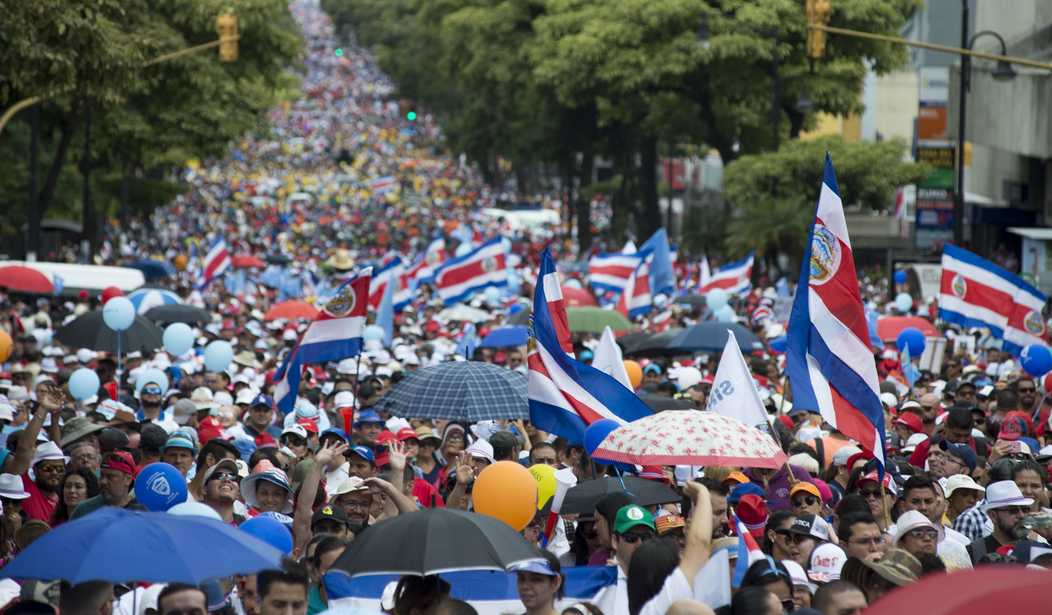As a general rule, Costa Rica is one of the most neutral, peaceful, and unproblematic countries in the Western Hemisphere. It doesn't even have its own military and generally chooses to stay out of geopolitical conflicts. It's enjoyed uninterrupted democratic stability since 1948, and it has a higher global peace index rating than most other countries in Latin America, many of which are plagued with cartel action, gang violence, authoritarian rule, and political corruption. Instead, Costa Rica is a paradise that welcomes millions of visitors from around the globe each year to enjoy its lush jungles, pristine beaches, and unmatched local hospitality.
But you can only live in a bad neighborhood for so long before trouble reaches your doorstep. Homicides are on the rise — in 2023 they were higher than they'd ever been. Drug trafficking impacts the country, especially along the Caribbean coast near the port in Limón. I spend a lot of time in that area or just south of there, and while I still feel safe, there have been times when I've been out with a friend, and he's suggested we leave the bar we're in because he believes cartel members are present. Instead of turning a blind eye to any of this, Costa Rica has done something historic that proves it's serious about standing up to organized crime and supporting Donald Trump and the United States in our narco-war.
One way Costa Rica maintains its neutral tendencies is by shielding its own citizens from extradition to other countries. Regardless of the type or crime committed or where the person committed it, if he or she is a Costa Rican national, they're safe if they can get back to their home country. It's part of the nation's Constitution. While Costa Rica has extradition treaties in place with the United States and other countries, the treaties only allow for the government to extradite foreigners. Unfortunately, criminals often take advantage of this, which has led to the increase in drug-related crimes.
However, earlier this year, that changed. On May 15, the Legislative Assembly voted 44-13 to amend that article of the Constitution, and a couple of weeks later, President Rodrigo Chaves signed it into law. The United States government applauded this move. Mike Flores, chargé d’affaires at the U.S. Embassy in Costa Rica, said, "Extradition is a key tool in the fight against organized crime and sends a message of trust and responsibility between our countries."
And earlier this month, Costa Rica exercised its new law for the first time. On October 7, Judge William Serrano Baby, of San José’s Tribunal Penal del I Circuito Judicia, ruled that three Costa Rican nationals — Celso Manuel Gamboa Sánchez, Edwin Danney López Vega, and Jonathan Guillermo Álvarez Alfaro — could be extradited to the U.S. to face cocaine trafficking charges in Texas.
Gamboa Sánchez and López Vega are the big ones for the United States — they were arrested in Costa Rica on June 23, and the U.S. Department of Treasury sanctioned them in the August. Gamboa Sánchez is a former judge and the former Costa Rican minister of public security who "used his extensive network of contacts within the government to acquire information about ongoing counternarcotics investigations" and was "bribing police and government officials to facilitate cocaine transport." The Treasury Department also accuses him of money laundering through businesses in San José’ and Limón.
López Vega, also known as "Pecho de Rata" or "Rat Chest," is a kingpin based in Limón, who allegedly works for Gamboa Sánchez. He'd just gotten out of jail in December 2023 after serving eight years. Álvarez Alfaro is involved in the logistics of getting drugs from Costa Rica to the U.S. He was also arrested on June 23.
Making constitutional changes to its extradition practices isn't the only way Costa Rica is stepping up, however. It's also taking a lesson from El Salvador and building a mega-prison, similar to Nayib Bukele's Centro de Confinamiento del Terrorismo (CECOT). Costa Rica's Justice Minister Gerald Campos toured CECOT earlier this year and said that the Salvadoran government will provide technical assistance on the new project.
According to Reuters, Capos said the prison is necessary because the current system is "30% overpopulated, creating conditions that allow incarcerated leaders to continue running criminal enterprises."
He told a congressional committee that "If we don't do this, the system is going to collapse, and we risk internal conflicts, hostage taking, and riot." The prison will hold 5,100 inmates, increasing the Costa Rican prison capacity 40%.
Costa Rica was already a strong U.S. ally, but taking these steps will strengthen our relationship even further, and it will help make both nations great again. Central America remains the dominant route through which the drugs that hit U.S. streets flow. It will take all of our countries cracking down on this kind of activity to stop it and reduce violence and crime.
As I've reported over the last few months, there's a hint of change in the air in Latin America. People are fed up with cartels and left-wing dictators ruining their lives and electing leaders like Bukele in El Salvador, like Chaves in Costa Rica, and like Javier Milei in Argentina. Bolivia is on the brink of rejecting socialism and electing a right-wing president. Venezuela citizens are fed up with Nicolás Maduro and begging for U.S. help to get rid of him. Cuba could follow, as could Nicaragua. Combine all of that with the fact that Marco Rubio, a man who understands the benefits of a strong and allied Western Hemisphere, has Donald Trump's ear, and I think we're on the brink of something beautiful in our region.










